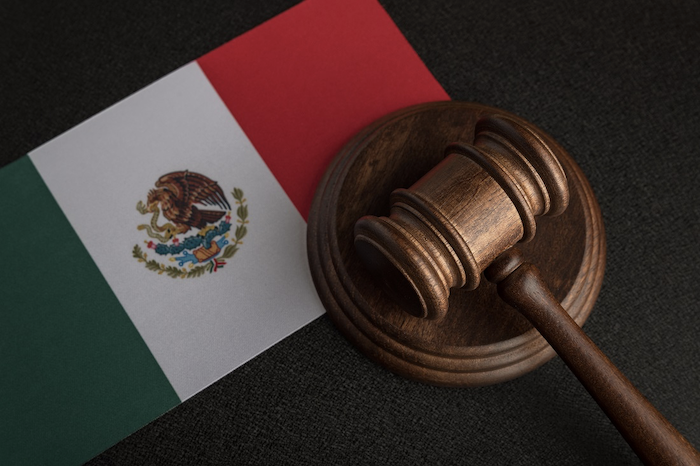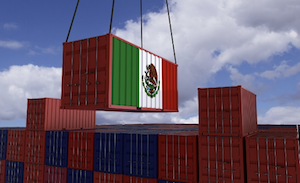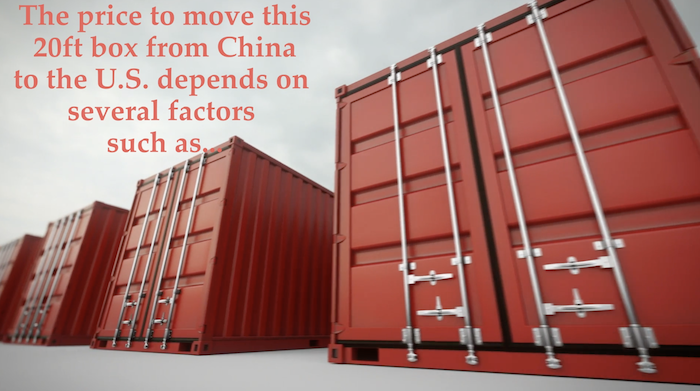Amendments to the MX Customs General Rules for 2024 and to Annexes 1, 2, 5 and 24 (Reglas Generales de Comercio Exterior para 2024)

On September 15th, 2024, the Mexican Congress published on the Diario Oficial de la Federacion (Mexican Official Gazette) a decree to amend, add, and abolish several provisions of the Mexican Constitution regarding the Judicial Power. This reform, as it is being called, is one of the major changes to the Mexican Judicial System and has been met with heated debates by opponents who fear it will put the balance and separation of power at risk as it will result in a weakened and deteriorated judicial system overpassed by the legislative and executive powers.
Hot Topics IMMEX

Bob Brewer, VP of Marketing/NBD for Braumiller Law Group is joined by Brenda Cordova, BLG’s Mexico Counsel for a discussion regarding IMMEX…..what is it, and what are the benefits.
Hot Topics with Brendita

Mexico has positioned itself as an attractive destination for foreign investment, offering enhanced security, tax breaks, and infrastructure support making it easier for companies to setup operations. The Mexican government has also streamlined procedures for a more business friendly environment. Many Chinese companies are setting up operations in Mexico to be closer to their U.S. target market. BLG can help Chinese companies with their transition to Mexico.
Deep Thoughts on IMMEX by Bob

Is your company manufacturing in China and importing to U.S. and do you need a break from Section 301 tariffs, forced labor regulations, WRO detention, anti-dumping, etc.? If your U.S. market share warrants it, you might consider an IMMEX (Manufacturing, Maquiladora and Export Services Industry) in Mexico that BLG can help with our legal experts.
The Importance of Pedimento Codes for the IMMEX Customs Regime

In Mexico, a customs regime is the destination or treatment for goods subject to customs control in accordance with the nature and purposes of a customs operation. Companies with an IMMEX program may perform operations under the so-called customs regime of “temporary importation for elaboration, transformation or repair under a maquila program”. This name by itself implies several facts to consider.
La importancia de los Claves de Pedimentos en el Régimen Aduanero de las IMMEX

En México, un régimen aduanero es el destino o tratamiento que se da a los bienes objeto de control aduanero de conformidad con la naturaleza y propósitos de una operación aduanera. Las empresas con un programa IMMEX pueden realizar operaciones al amparo del régimen aduanero llamado “importación temporal para elaboración, transformación o reparación en programas de maquila”.
Suspensión del Padron de Importadores

Uno de los requisitos más importantes para importar mercancías a México es estar registrado como importador en el registro de importadores mexicanos. Hay 2 tipos de registros para importadores, uno es para importadores generales (Padrón de Importadores) y el otro es para importadores de sectores industriales específicos (Padrón de Importadores de Sectores Específicos) que pueden importar mercancías identificadas por el código arancelario MX (es decir, productos químicos, armas de fuego, puros, calzado, textiles, alcohol, hidrocarburos, siderurgia, automoción, etc.). Generalmente, estos 2 registros son listados con información de personas y entidades autorizadas para importar mercancías a México.
Suspension of Mexican Importer Registration (Padron de Importadores)

One of the most important requirements for importing goods into Mexico is to be registered as an importer under the Mexican importer’s registry. There are 2 types of registries for importers, one is for general importers (Padron de Importadores), and the other is for importers of specific industry sectors (Padron the Importadores de Sectores Especificos) which may import goods identified by the MX tariff code (i.e. chemical products, firearms, cigars, footwear, textiles, alcohol, hydrocarbons, steel, automotive, etc.). Generally, these 2 registries are lists with information of individuals and entities authorized to bring goods into Mexico.
Light Years from China

A light year is 5.88 trillion miles and using the latest man-made vehicle, NASA’s Juno spacecraft traveling at 165,000 mph it would take 2,958 years to travel a light year. A cargo container traveling by ship from the Port of Shanghai, China to the Port of Los Angeles is 19,270 nautical miles and traveling at 10 knot, it takes 12-21 days. It just seems like 2,958 years if it’s your product onboard. Ever think of manufacturing in Mexico as an alternative? BLG has IMMEX experts onboard our ship. We love the science behind Global Trade Compliance.
20 Foot Box

The price to move a 20 foot shipping container from China to the U.S. depends on several factors such as the container type and condition, location of the port, supply and demand, market situation, and the shipping route. The price does not include any section 301 tariffs, and potential forced labor issues. This makes one wonder if manufacturing in Mexico would make more sense with an IMMEX. We have Mexico Legal Counsel who say it would.
